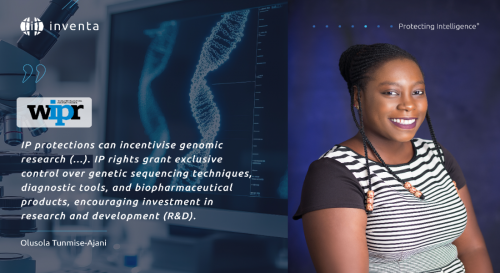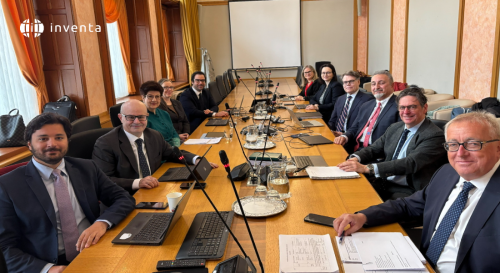
Provisional Patent Applications - Apply first or repent later
Web Summit 2016 is almost here (7th-10th November, Lisbon) and startups and entrepreneurs will come together to share ideas about technology but also to show-case new products and projects, but Intellectual Property protection should not be thrown to the sidelines.
When Steve Jobs delivered the keynote introducing the iPhone to the world he famously said about their multi-touch technology, “and boy, have we patented it” and this was because Steve Jobs understood from personal experience that you should file for patent protection first and only later proceed to publicly disclose your inventions.
One of the requirements of patents is absolute novelty, which means that an invention should not be known by the public, before its application or priority date. In other words, if an entrepreneur or inventor discloses its invention to the public before filing a patent application, its invention will be deemed not novel and thus could be rejected by Patent Offices or Courts. Taking into account that many jurisdictions do not provide grace periods for authorized disclosures, the novelty requirement is pivotal to have a successful patent application.
However, it is normal that inventors are not able to have the necessary formal patent requirements to file a non-provisional patent application, so it might be advisable to file a provisional patent application, which has fewer formal requirements. Also, the inventor’s Patent Attorney will require less time to prepare the application and it will thus be cheaper and less time consuming even for the inventor.
Provisional applications are also useful should inventors require proofs of concept and prototypes so that they improve their technical knowledge about their inventions. Provisional patent applications help inventors gain time to do further work on their inventions before submitting the non-provisional application and perfect it.
Generally, inventors and patent attorneys will have 12 non-extendable months counting from the provisional application in order to have all the necessary elements to file the definitive patent application, as long as the subject matter, i.e. the patent claims, are already present in the filed non-provisional application. During the referred 12-month period, some IP Offices even issue search reports so that it is easier for inventors to improve their applications.
Coming back to where we started, especially if you are to disclose your invention for whatever reason, even if you are not sure whether your invention meets the patent requirements or if you cannot afford a non-provisional application, the benefits of filing a provisional application heavily outweigh not filing one at all. Novelty will not be sacrificed and all the legal effects will backtrack to the original provisional application date which allows inventors to be more open to talk about their inventions publicly.
To know more about protection types for an invention, click here.
Territory List
There are no results for your search.
- Africa
- Algeria
- Angola
- Benin
- Botswana
- Burkina Faso
- Burundi
- Cameroon
- Cape Verde
- Central African Republic
- Chad
- Comoros
- Congo (Republic)
- Côte d'Ivoire
- Democratic Republic of the Congo
- Djibouti
- Egypt
- Equatorial Guinea
- Eritrea
- Eswatini (Swaziland)
- Ethiopia
- Gabon
- Gambia
- Ghana
- Guinea
- Guinea-Bissau
- Kenya
- Lesotho
- Liberia
- Libya
- Madagascar
- Malawi
- Mali
- Mauritania
- Mauritius
- Mayotte
- Morocco
- Mozambique
- Namibia
- Niger
- Nigeria
- Réunion
- Rwanda
- Sao Tome and Principe
- Senegal
- Seychelles
- Sierra Leone
- Somalia
- South Africa
- South Sudan
- Sudan
- Tanzania (mainland)
- Togo
- Tunisia
- Uganda
- Western Sahara
- Zambia
- Zanzibar
- Zimbabwe
- Africa (OAPI)
- Africa (ARIPO)
- Other
- East Timor
- Macao
- Maldives
- Portugal
- European Patent (EPO)
- European Union Trademark (EUTM)
- International Trademark (Madrid System)
- Patent Cooperation Treaty (PCT)





